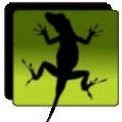
Some owners of herps allow their pets, especially iguanas, to roam through the house, or at least a few rooms. Every herp owner has the fear that their pet may escape from his cage and become lost in the home. Whether intentional or accidental, a herp loose in the house faces many hazards.
The following items may cause injury or be dangerous to some degree if ingested, inhaled, or placed in contact with your herp. Some can cause death almost instantly. Others may cause only a mild reaction, but it is best to remove them from any areas where they would be in contact with your pet. This is not a complete list, so if you are in any doubt about something that your reptile has eaten or been in contact with, please contact your veterinarian or the National Animal Poison Control Center at (888) 426-4435. (They charge $50.00 per case.)
Windows and Doors
- Open doors and windows are invitations for your herp to escape to the outside.
- Do not leave doors to the outside open.
- Keep windows closed unless there is a strong screen securely installed. Check the screens regularly for any holes or loose wire that could injure your herp or allow escape.
- Curtains and drapery can pose hazards, especially to lizards, if toenails become stuck in the fabric or the animal becomes entangled in the cord. Keep your pet's nails clipped to the appropriate length.
Temperature Extremes
Extreme heat and cold can be dangerous for your herp.
- Avoid placing your herp's cage in any drafty area; keep him well away from fans, open windows, and heat registers. Also, do not place him in a cold room, or area that may be in full sun with no shade.
- Regularly check your thermostat and cage temperature. Have back-up plans in place in case of a power outage.
Suffocation or Crushing
Many herps like to hide under things, or find a small "hole" into which they can retreat. With their small size, they can easily go unnoticed and be trapped or injured by moving parts. To prevent these occurrences:
- Always look where you walk. Many herps have been injured or even killed from being stepped on.
- When you close a door or cupboard, make sure your herp is not sitting on top of it or on his way through the opening.
- Do not allow your herp in rooms where computer printers, electrical tools, vacuum cleaners, or other mechanical devices with moving parts are being used.
- Use caution when using fold-out beds or recliners since herps may get underneath them and into the mechanism.
- Before moving or laying anything on the bed covers, laundry basket, or other areas where there are multiple layers of fabric, be sure your herp has not gotten between the layers.
- Cover all air ducts to prevent a herp from exploring and becoming lost in the maze.
Child – Herp Interactions
A herp could be hurt, or hurt a child if he is improperly handled. To keep everyone safe:
- Take into account the age of children, their maturity, and experience with handling herps and other pets when deciding if they may be left alone with a herp. Also, take into account the temperament and size of the herp.
- Establish household rules regarding the handling of the herp, including what supervision is necessary.
- Show children the correct way to handle a herp and praise them when they do it properly.
- Because of the risk of Salmonella, do not allow children under 5 years of age to handle a herp. Advise everyone who handles a herp or anything in the herp cage to wash their hands well, before and afterward.
Interactions With Other Pets
Extreme care should be taken when introducing your herp to other pets. It is natural instinct for wild canines and felines to prey on small herps. Sometimes the reverse is true, and a large herp can actually be more dangerous. Animal bites can cause severe injuries and be fatal. If your herp is bitten, always seek veterinary attention.
- Never leave a loose herp unattended in a room with another pet, even if they appear to get along well together. It is always better to be safe than sorry.
- Place herp cages where they cannot be tipped over by inquisitive or predatory behaviors of other pets.
- Cover all aquariums to prevent your herp from accidental drowning or drinking the water that may contain infectious organisms or checmicals used to threat the water.
- Keep cat litter boxes out of the reach of herps. Ingestion could result in obstructions of the digestive tract.
- Keep water dishes out of the reach of herps, since some smaller reptiles can drown in even a small amount of water.
- Keep all flea and tick sprays and pet medications and supplements — especially those that are flavored — out of the reach of herps.
Kitchen Hazards
The kitchen contains an almost endless number of hazards including:
- Burns from hot burners, open ovens, toasters, coffee pots, tea kettles, boiling water, or hot cooking oil.
- Drowning in a sink or even a small bowl of water.
- Injuries or entrapment in open appliances, such as dishwashers, freezers, and refrigerators.
- Cuts from sharp objects, such as knives.
- Toxic foods including alcohol, salt, and coffee, tea, colas, and other caffeinated beverages.
The kitchen should be off limits to all herps not only for their safety, but also because of the risk of Salmonella contaminating food or eating utensils.
Bathroom Hazards
Bathrooms can be almost as hazardous as kitchens, and extreme care should be taken if a herp is allowed in this room of the house.
- Prevent access to water in sinks, bathtubs, toilet bowls, and jacuzzis, since drowning could easily occur.
- Keep all medications, including vitamins and supplements, out of the reach of children and pets.
- Keep other potentially poisonous items, such as shaving cream and lotion, hair dyes and permanent solutions, and cleaning supplies, including toilet bowl cleaner safely stored.
Again, reduce the risk of Salmonella by not allowing your herp access to the bathroom.
Laundry Room Hazards
The laundry room is another area of the house that poses multiple threats to herps.
- Use care when placing or removing laundry from baskets — your herp may have found the basket to be a good sleeping place.
- Keep the doors to the washer and dryer closed, and watch very closely as you load and unload the laundry. Herps have accidentally been trapped and killed in these appliances.
- Keep detergents, fabric dyes and softeners, bleach, and other potentially toxic laundry supplies safely stored out of the reach of children and pets.
Heat Sources
Burns are a common injury in pet herps and can occur from a number of sources other than kitchen appliances.
- Never allow your herp in a room where there is an open flame from candles, fondue pots, heated potpourri pots, or other sources.
- Keep your herp caged when using a space heater or fireplace. Even if glass fireplace doors would prevent access to the fire, the doors themselves can be very hot. Also, always keep the damper and doors to the fireplace closed when it is not in use.
- Radiators can also pose a risk of burns.
- Light bulbs, especially halogen ones, can become quite hot, and remain hot even after being turned off. Be sure they are cool before allowing your herp access.
- Use care when using heating pads. One snake actually ingested a heating pad!
Smoke and Fumes
Amphibians, especially, are very sensitive to airborne toxins, since their skin is very permeable. The following should all be considered dangerous around herps:
- Smoke from any source is hazardous. Secondhand smoke from cigars and cigarettes can cause chronic eye, skin, and respiratory disease. Install smoke and carbon monoxide alarms. Tobacco is also toxic, so remove any whole or smoked cigars or cigarettes before allowing your herp access to a room. Marijuana is also toxic.
- Gasoline, kerosene, lighter fluid, and other petroleum products.
- Paint, wood stains and preservatives, mineral spirits, turpentine, paint remover, paint thinner, and other solvents.
- Cleaning supplies and disinfectants including bleach, phenols, ammonia, pine oil, spot remover, window cleaning solution, floor and furnisher polish.
- Scented candles, potpourri, tea tree oils, essential oils, air fresheners.
- Perfumes, hairsprays, room deodorizers, deodorant, nail polish remover - anything with a propellant.
- Other items that can give off fumes such as glues, permanent markers, and mothballs.
Do not use the above items in the presence of herps, especially amphibians. If they are being used in larger areas of the house, it is best to remove the herp from the house temporarily.
Other Toxins or Hazards
In addition to those mentioned, there are many other potential toxins that are found in and around many homes. Since herps can absorb chemicals through their skin, always wash your hands well after having contact with any possible poison.
- Protect your herp from: Jewelry, button batteries, coins, fishing tackle, pins, and other small metallic items that can cause mouth injuries, damage, or obstruction of the digestive tract, or toxicity.
- Toxic houseplants.
- Poisonous heavy metals include zinc, lead, and arsenic, which are surprisingly common in a household.
- Zinc is present in galvanized metal such as nails, staples, and solder. It may also be present in zinc oxide skin preparations, such as Desitin and sunblock containing zinc oxide; calamine lotion; suppositories; shampoos; zinc undecylenate (Desenex); and fertilizers. Be sure to wash your hands after using these items and before handling your herp.
- Lead is present in lead-containing paint, linoleum, tile, batteries, plumbing materials, putty, lead foil, solder, and acid (soft) drinking water from lead pipes or improperly glazed ceramic water bowls.
- Arsenic is a highly poisonous metal used in insecticides, pesticides, rodenticides, weed killers, wood preservatives, some insulation, and some alloys.
- Other poisons, such as herbicides (weed killers), snail and slug bait, insecticides (flea and tick control products), pesticides (ant poison), and rodenticides (rat poison). Be careful with mouse traps, too.
Summary
It may seem like a daunting task to make your home herp safe, but it can be done. Remain on the lookout for potential hazards, regularly check each room of the house, and daily monitor your herp for any signs of illness. Being on the safe side will help your herp live a longer and healthier life with you.
If you lose your herp, check the cage again, and then look in dark warm places, including:
- Closets
- In the back of or next to the motor of appliances
- Behind baseboards and toekicks
- Inside furniture or under cushions — be especially careful of recliners
- Layers of fabric, such as bedding, laundry baskets, linen closets, or dresser drawers
- Heating vents
- Higher areas — heat rises, so don't forget to look up — e.g., on top of high dressers
- Potted plants — especially those near a sunny window
- Shoes or clothing on the floor
- Behind items on a shelf, such as in a bookcase
- Near lights, especially those that have been on recently
- Behind drapery or blinds



No comments:
Post a Comment